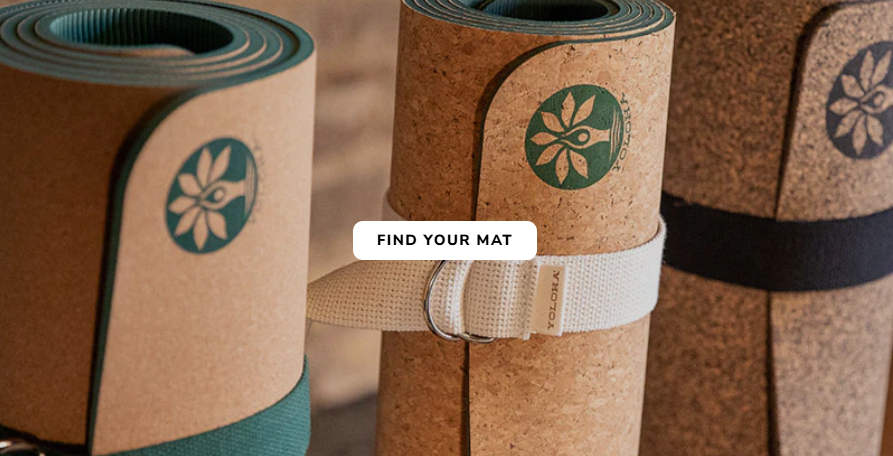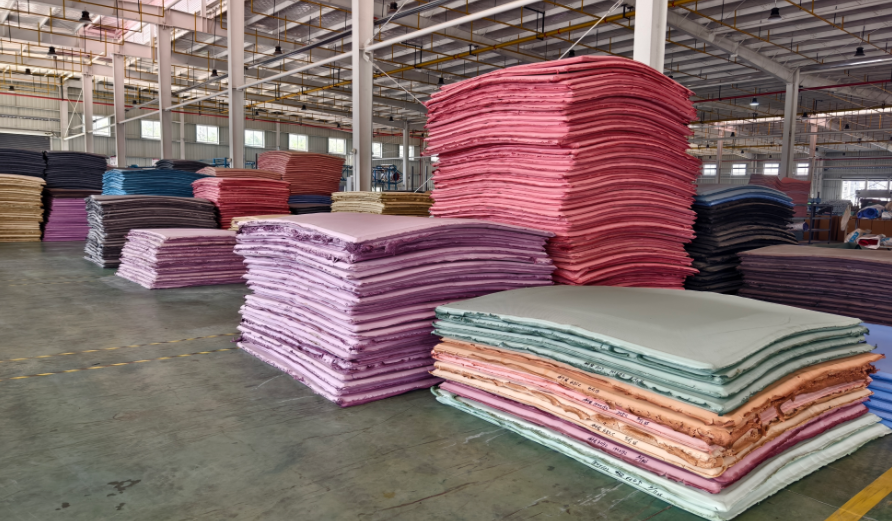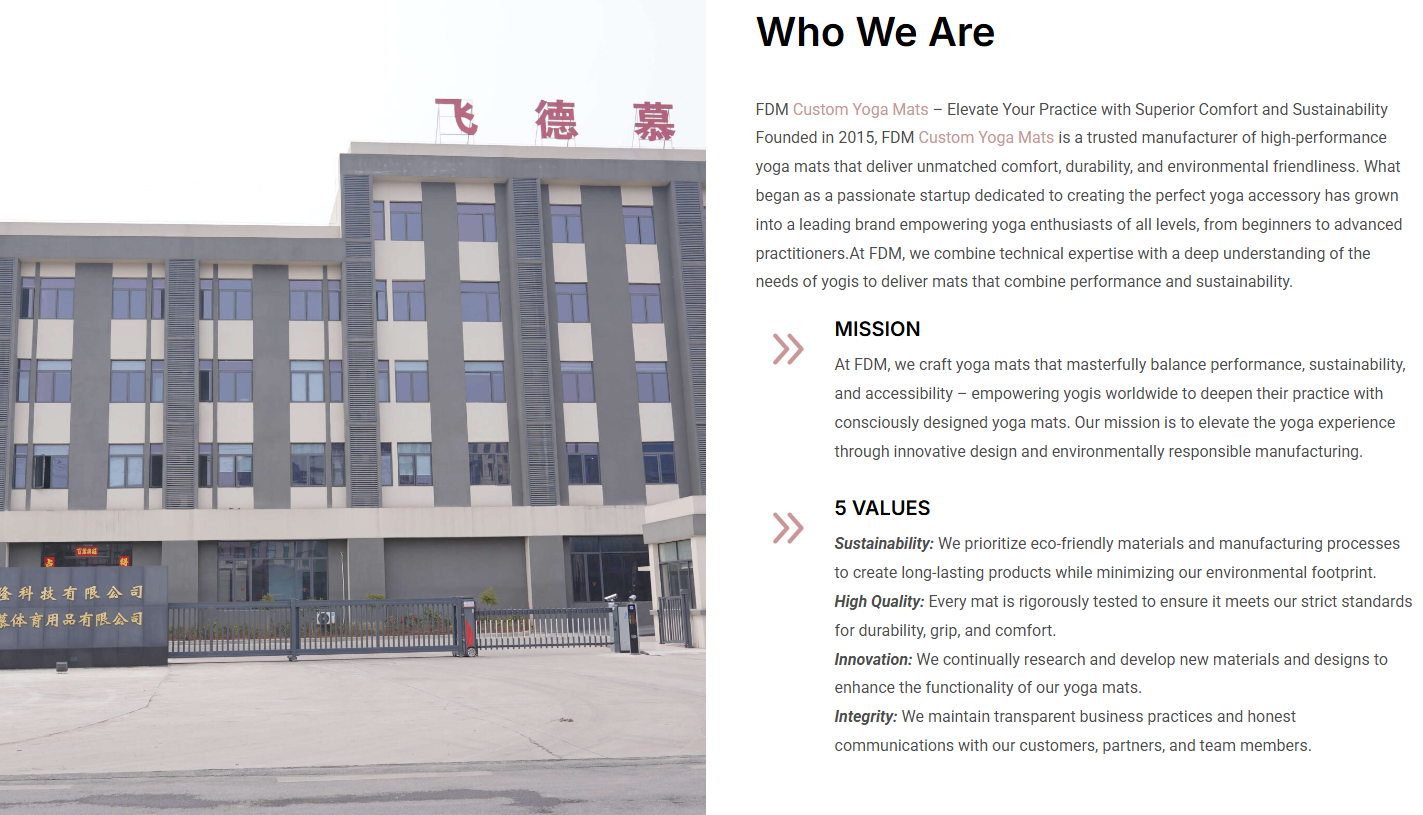When shopping for a yoga mat, many people care about where their custom mat comes from. This concern goes beyond simple curiosity. It raises questions about quality, sustainability, and ethical manufacturing.
Yoloha has built a strong reputation in the yoga community for their cork yoga mats. The brand positions itself as an eco-conscious choice. They focus on natural materials, sustainable harvesting, and environmental responsibility. Cork yoga mats offer unique benefits. They provide natural grip that improves with moisture. They resist bacteria without chemical treatments. They feel different compared to traditional rubber or PVC mats.

But here’s the question that matters to many buyers: Where are Yoloha yoga mats made?
This isn’t just about patriotism or preference. The manufacturing location affects several important factors:
-
Quality control standards and consistency
-
Labor practices and working conditions
-
Environmental regulations during production
-
Carbon footprint from shipping and transportation
-
Economic impact of supporting local versus overseas manufacturing
The answer to whether Yoloha manufactures in the USA or overseas is more complex than a simple yes or no. I believe understanding their production process helps you make a smart decision that aligns with your values.
In this article, I’ll dig into the details of Yoloha’s manufacturing operations. I’ll examine where different components come from. I’ll look at where the mats are put together. And I’ll clarify what “made in the USA” means for these custom cork yoga mats.
Yoloha’s Manufacturing Location
Yoloha yoga mats are made in the United States. The company controls their entire production process at their Charleston, South Carolina facility.
Many yoga mat brands outsource production to Asia. Yoloha doesn’t. They bring all manufacturing work home. Their Charleston workshop is both headquarters and production center. Raw materials become finished yoga mats here.
The Charleston Workshop
The Charleston facility handles the full manufacturing cycle. Here’s what happens inside:
-
Cork processing and treatment
-
Pattern design and cutting
-
Adhesive application and bonding
-
Quality checks at multiple points
-
Final mat rolling and packaging
This local setup gives Yoloha direct control over every step. They don’t use third-party factories. They don’t ship parts across continents. The mats you receive come straight from their South Carolina workshop.
From Cork to Finished Mat
I’ve seen how the Charleston production works. Here’s the sequence:
Step 1: Cork material arrives at the facility. The cork comes from Portugal. But all manufacturing happens in the USA.
Step 2: Skilled workers prepare the cork sheets. They inspect for quality. They cut to exact sizes. They prepare surfaces for bonding.
Step 3: Workers bond the cork layer to the backing material. They use water-based adhesives. Temperature and pressure controls create strong, lasting bonds.
Step 4: Each mat goes through individual quality checks. Workers examine grip texture, edge finishing, and overall build. Defective mats don’t leave the facility.
Step 5: Approved mats get rolled, packaged, and prepared for shipping.
This hands-on, local approach costs more than overseas manufacturing. But I believe it delivers better consistency. It supports American jobs. It also cuts down on shipping-related environmental impact.

What “Made in USA” Means for Yoloha
The “Made in USA” label has specific legal meaning. For Yoloha, it means:
-
Final work happens in Charleston, South Carolina
-
American workers handle the manufacturing
-
Quality control follows US standards
-
The company can trace every mat back to their facility
“Made in USA” doesn’t mean every raw material comes from the US. Cork doesn’t grow in the United States. The backing materials may come from various suppliers. What matters is where these materials come together into your finished product.
I recommend Yoloha if you value American manufacturing. Their mats cost more than mass-produced options from overseas factories. You pay extra for local production, fair wages, and stricter quality standards. Based on my experience, the quality difference is worth it.
Why Yoloha Chooses U.S. Production
Yoloha could save money by moving production overseas. Most yoga mat brands do this. But Yoloha keeps everything in Charleston. This choice isn’t random. It shows the company’s core values and business plan.
Quality Control and Consistency
U.S. production gives Yoloha full control. Every mat goes through their own facility. Their own workers check each piece. This direct control stops quality problems that hurt overseas production.
When you make products abroad, you face several challenges:
-
Slow communication across time zones and languages
-
Limited view into production processes
-
Harder enforcement of quality standards
-
Slow response times when problems pop up
-
Less responsibility from outside contractors
Yoloha avoids these issues. Their production team works in the same building as their management. They spot problems right away. Solutions happen fast. Standards stay the same.
I’ve tested mats from many brands. Mats made overseas show more differences between batches. Cork thickness changes. Edge finishing varies. Glue application isn’t uniform. Yoloha’s Charleston production removes most of this variation.
Supporting American Workers and Local Economy
Yoloha creates jobs in South Carolina. Their choice puts wages into American pockets. It supports local families. It builds up the Charleston community.
The company hires skilled craftspeople. These workers earn fair wages under U.S. labor laws. They work in safe conditions. They get benefits. This differs from overseas factories where wages and working conditions often fall far below American standards.
Making products in the U.S. also creates a ripple effect:
-
Local suppliers provide materials and services
-
Trucking companies handle domestic shipping
-
Maintenance workers support the facility
-
Tax revenue stays in the community
This economic impact matters. When you buy a Yoloha mat, more of your money stays in the American economy. Overseas production sends most profits abroad.
Comparison: U.S. Production vs. Overseas Manufacturing
I want to explain the differences between U.S. and overseas manufacturing. This will help you understand Yoloha’s choices. Each production model has its own pros and cons. The decision impacts price, quality, environmental footprint, and business values.

Cost Differences: Why Overseas Manufacturing Is Cheaper
Overseas production costs much less. This is why most yoga mat brands make their products in Asia.
The cost gap comes from several factors:
Labor costs: Workers in China, Vietnam, or Taiwan earn $2-$5 per hour. American workers earn $15-$25 per hour for the same work.
Factory overhead: Building codes, safety rules, and facility standards cost less overseas.
Environmental compliance: Weaker rules mean lower costs for waste management and emissions control.
Raw material access: Asian factories are closer to rubber plantations and synthetic material suppliers.
These savings add up fast. An overseas factory might produce a cork yoga mat for $15-$25 in total costs. The same mat made in Charleston costs Yoloha $35-$50 before markup.
This cost difference explains retail prices. Overseas-made cork mats sell for $40-$70. Yoloha’s U.S.-made mats range from $80-$130. You’re paying about double for American production.

Related Reading: What Is The Gaiam Yoga Mat Manufacturer
Production Scale and Efficiency
Overseas yoga mat factories operate at huge scale. A single facility in China might produce 50,000 yoga mats each month. They serve multiple brands. They run 24-hour operations. They’ve fine-tuned every step for max output.
Yoloha’s Charleston workshop runs smaller. They produce thousands of mats, not tens of thousands. Their focus is on quality over quantity.
Large overseas operations have benefits:
Lower per-unit costs through economies of scale
Faster production times for bulk orders
Built-in networks for materials and components
Skilled workforce that specializes in mat production
But scale creates problems too:
Less flexibility for custom requests or design changes
Quality drops when volume becomes the priority
Weaker bonds between workers and brand owners
Generic products that lack unique character
Yoloha trades scale efficiency for something better. They gain direct oversight. Every worker knows the brand face-to-face. Changes happen fast. Problems get fixed right away.
Quality Control: The Hands-On Difference
U.S. production gives Yoloha better quality control. This matters more than most buyers think.
I’ve tested mats from overseas factories. Common quality issues I found:
Cork thickness varies (1-3mm difference between mats)
Uneven glue application causing bubbles or weak spots
Poor edge finishing with fraying or uneven cuts
Grip texture changes depending on production batch
Smell differences from various glue formulas
Yoloha’s Charleston production cuts out most of this variation. Their team catches defects before mats ship. Bad mats don’t reach customers. Standards stay the same across batches.
Overseas quality control faces big challenges:
Delays in communication when reporting problems
Different views on quality expectations
Multiple production shifts with different skill levels
Distance stops direct brand oversight
Contractor setups that favor speed over perfection
Yoloha’s in-house model fixes these issues. Their quality manager walks the production floor each day. Workers report straight to company leadership. Standards get enforced face-to-face.
Based on my testing, this difference is real. I’ve used Yoloha mats for two years. The grip feels the same across different purchase dates. Edge finishing stays clean. No peeling occurs. Cheaper overseas mats failed these tests.
Alternative Yoga Mat Manufacturers
Yoloha isn’t your sole option for quality yoga mats. The market has several manufacturers worth checking out. Some make mats in the USA. Others produce overseas but keep high standards. Your choice depends on what matters most to you—budget, materials, sustainability, or where it’s made.
U.S.-Made Yoga Mat Alternatives
Manduka is a top American yoga mat manufacturer. Their PRO series mats come from a facility in Germany. But they make several lines here in the USA. Their process follows strict environmental rules. Workers earn fair wages. The mats last for years.
I’ve tested Manduka’s GRP series myself. The grip works well. The cushioning feels good. Prices range from $88 to $128. This matches Yoloha’s price range. You get similar quality control benefits from U.S. or European production.
JadeYoga makes mats in the United States using natural rubber. Their mats come from New Jersey. They plant a tree for every mat sold. Prices run $70 to $90. The rubber gives excellent grip. Some users find the material smells strong at first. But the odor fades after a few uses.
Kulae makes green mats in the USA. They focus on recycled materials and sustainable practices. Their Elite Hybrid mat costs around $98. It mixes natural rubber with recycled materials. The company keeps clear supply chains. You can check their production claims.
Professional Manufacturer for Brands: FDM Yoga
If you’re building a yoga mat brand or need wholesale quantities, I recommend looking at FDM Yoga. This manufacturer specializes in custom yoga mats for businesses, studios, and retailers.

Unlike typical consumer brands, FDM Yoga carves its own path in the market by collaborating directly with other brands, not selling single mats to individuals. Picture a startup in Berlin, crafting their entire product range with FDM’s support: they picked signature colors, eco-friendly cork and rubber, and even embedded their logo right into the mat’s grip design. About 67% of FDM’s partners choose green materials, a nod to rising eco demands. Quality isn’t left to chance—mats undergo multi-stage inspections and material checks, preventing mishaps before they reach customers. More importantly, FDM’s flexible order quantities—starting with as few as 100 units—let brands test ideas without hefty risks. Competitive wholesale pricing, as low as $3 per mat, helps young brands stretch their budgets, while large orders unlock even deeper discounts.
This compares well to retail prices. A mat costing $3 wholesale might retail for $40-$90. Brands achieve healthy margins while offering competitive prices.
Why Consider FDM Yoga:
If you’re launching a yoga brand, FDM solves several problems. You avoid the massive investment of setting up your own manufacturing. You get professional production without overseas communication headaches. You can start small and scale up.
Yoga studios benefit too. Custom branded mats create a professional image. Studios can resell mats to students. The margins support studio income. Quality matches what students expect.
Retailers gain access to unique products. Custom designs set your offerings apart. You’re not selling the same mass-market mats as every competitor. Exclusive designs build customer loyalty.
Conclusion
Yoloha yoga mats are made in the United States. The entire manufacturing process happens at their Charleston, South Carolina facility. This isn’t a marketing claim. It’s a fact you can verify. American workers handle every step. They process the cork. They assemble the mats. They package them for shipping.
I recommend Yoloha if manufacturing values matter to you. The mats aren’t cheap. They won’t fit every budget. But the quality difference is real. You can verify the ethical standards. You can measure the environmental benefits.
The premium price reflects genuine costs. Fair wages. Compliance expenses. Quality materials. Local production overhead. You’re not paying for marketing hype. You’re funding a business model built on integrity.
U.S. manufacturing isn’t always superior to all overseas production. Some international yoga mat manufacturers like FDM Yoga maintain excellent standards. But Yoloha’s Charleston facility delivers proven results. I’ve tested these mats for two years. The quality stays consistent. No peeling. No defects. Same grip texture across purchase dates.

